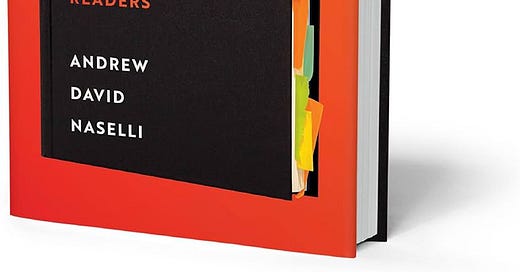Reasons you should read it too:
Reading comprehension is seemingly low in our age.
What a snobby remark! I’ll admit I’m merely plucking some low hanging fruit and it’s always been in vogue to bemoan how terrible things are in our day. However, my snobbiness has some empirical merit. Social scientists and cultural observers have written in the last several years how our matured age of internet use, specifically social media has lessened our collective ability to read, comprehend, and retrain.
Naselli himself, in the later chapters of the book, shares that even as a PHD -twice over- he (and we all) live in a time of short attention spans, where we are easily distracted, and struggling to focus and think clearly.
“Social Media is making us America Stupid” (link) has some merit, and there is more than one person having this conversation.
One of the ways we combat the weaknesses of our age full of click bait, straw men arguments, and fake memes… is we relearn and master the ability to read and think deeply. I especially recommend pages 29-44 that give careful instruction in how to observe and trace an author’s line of thought.
This is an easy book to read!
It’s 200 pages, written at a level where teenagers can easily pick it up and read. (I’ll admit I read this after my wife and daughter did, and they are better readers than I am)
What’s helpful is that the book is framed around 4 primary questions
- Why should you read?
- How should you read?
- What should you read?
- When should you read?
The practicalities of someone laying it out simply, explaining what you may know intuitively about different levels of reading, recommending not just how to get started but how to think carefully, plan, enjoy it, and avoid excuses we commonly make… it all makes for an easy and enjoyable read for anyone at any level.
Bonus points for constant references to Narnia, Harry Potter, and Jane Austen.
Read to see the mountains
I have an overused illustration I have often shared with others as it relates to studying theology. It’s not original to me but was helpful in a particular season and it’s always stuck with me.
Don’t fall in love with your windshield. It’s a pane of glass we keep clear and pristine as we can so we can see out of it. So it is with our theology, we carefully study and have faithful understandings of doctrine not as an end to itself but so we can clearly look up and see God. Or as it is in the ‘Last Battle’ we go ‘further up and further in’.
Naselli does a wonderful job of giving the reader the grander vision of reading. Straining to read well we don’t stop and admire our ability, that’s not the end. Reading helps us to look up and see the mountains and the person of God. Growing in reading helps you to see fiction and nonfiction writing as a window of glimpsing holy things, especially if you were to pick up and read the Scriptures!




